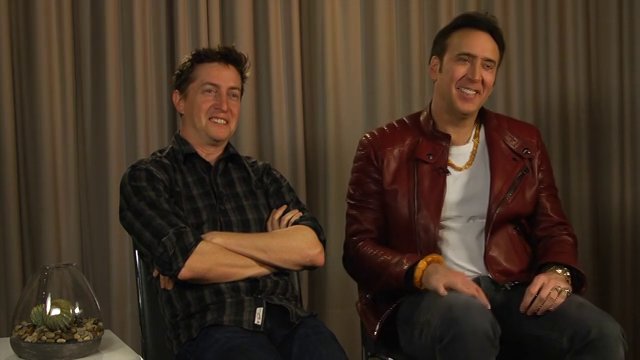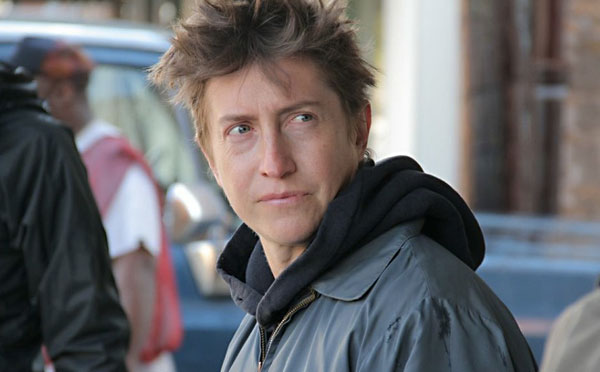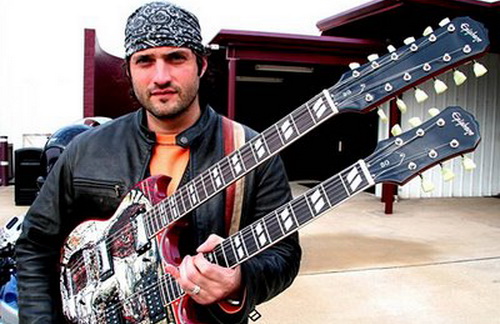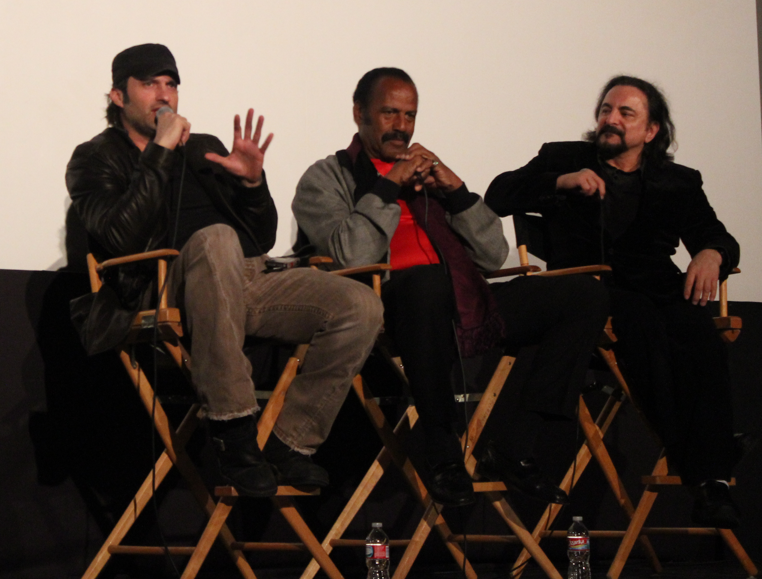SXSW 2014 Leftovers: Top 5 Anecdotes & Asides From Linklater, Rodriguez, And More
Like an avalanche of awesomeness, the 2014 edition of SXSW has washed over its attendees, leaving cinephiles to sift through the rubble and pick up the pieces of our lives.
One of the inherent detriments of a film festival as excellent as SXSW is the vast array of films you only realize were must-sees after the fact. Thus the SXSW FOMO syndrome is a nightmare that comes with the territory - I still shudder whenever someone says to me "did you see Faults?".
Twitch did a solid job this year of covering most bases, but in addition to our as-thorough-as-possible spread, there are always those bits of gold that slip through the fingers, whether in the form of a passing interaction, a nugget of wisdom from the red carpet, or an exchange that feels a little too good to be true. That these moments tend to go derelict seems to me to be one of the more tragic occupational hazards that can occur any given year. And so I give you my Top 5 Leftovers list. For if not for such a platform, one might never know Fred "The Hammer" Williamson's philosophy on butt kicking. Quelle tragedie!





Nicolas Cage & David Gordon Green on Blue Collar Roots
Since you’ve been acting from a very young age have you ever had to undergo any back-breaking, blue collar type of jobs in your early days?
Nicolas Cage: I used to sell popcorn at the Fairfax movie theater in Los Angeles. That was my first job. And I took the tickets as well. I was also the usher in that theater and I was trying to figure out how to get from selling the tickets to the screen.
And I’m looking and I’m watching the movies and then one day one guy was smoking. And my boss said you gotta go and tell him to put it out. So I said “I’m sorry, sir, you’re gonna have to put your cigarette out.” And he paused - he had some girl around him - and blew smoke in my face… and I quit. And that was the most backbreaking work laughter. And then my dad said “go back to the movie theater and get your job back”. So I had to beg for my job back.
David Gordon Green: I’ve had a lot of literally backbreaking work. I used to insulate attics. I was a little guy so they always used to send me in the nooks and crannies rolling out the R19 or whatever. I’d crawl around in real small places and get all sweaty. And that was in North Carolina so that was pretty intense in the summertime. But once I did a weird job where I worked at a doorknob factory for 20 hours a week but they paid real well to dunk doorknobs in acid. They would bronze these chrome doorknobs. So it was just me in this heavy suit dunkin’ doorknobs all day.
David Gordon Green
You make a wide variety of movies whether it’s your GEORGE WASHINGTON more arty films or your super smart stoner films. What informs what you set out to create?
It all depends on if I feel arty or farty. Honestly, I try to use my professional life to contrast my personal life, so I think if I make a really depressing movie it means everything is good and I’m feeling great. If I make a funny movie it means I’m trying to dig myself out of an emotional ditch or something.
So with a show like Eastbound and Down that we work on, it’s just a great experience because it’s with all my college buds and we go to the beach and we bring all our friends and so it’s just a way of livening up in between the more detailed undertakings. Everybody gets to let loose, bring all their ideas, and we all just have a kind of chaotic good time with it.
Of the varied productions in which you’ve been involved, in terms of your heavier dramas, does one stand out as the most enjoyable? How different is the tone on set depending on the material?
Well, it depends. Prince Avalanche kind of rides the line of... whatever it is. I think it’s really funny but a lot of people don’t. To me, that was really fun because you know it’s like 15 people in the woods for like 3 weeks making a movie and it’s down to earth without a lot of linguistics and paper work and the bullshit of the production process. It was just about working it out with people you trust and I think every day everybody went out for burgers and beers and hot fries and we’d go to bed, get up and get back to work the next morning. I really liked the routine of that project. It was really invigorating.
At The Austin Film Society press conference, you were discussing how the 90’s were sort of a rock-star period for the indie filmmaker.
Well, they used to get paid a lot so they could dress better in the 90’s.
Do you think that popularity for the indie film scene has been replaced by anything?
Good question, I do think about it in terms of the fact that there used to be a greater audience and more sizable budgets for independent-minded filmmakers. I think about Jim Jarmusch. He used to make a great movie like Ghost Dog and that cost like 8 million bucks, or whatever it was. There was some real financial substance to that.
I always look at the film business like any other business. It’s constantly evolving and I try and take into account all the evolutions of technology as well as the distribution, the outlets, the audience... people are always gonna be evolving. It may have been rough making a zombie movie 10 years ago and now they’re lining up for them, so everybody's ready for what’s new and I’m really inspired by people taking the bull by the horns and really pushing their stories and their process through the system and hoping it works.
Richard Linklater
To state the obvious, your movies are very thoughtful. How much meditating on an idea do you do before you take it to the page?
A lot, yeah... I’m not like a public person, I don’t throw stuff out. I like to really craft thoughts and stories and then share them with people. I think that culture now is just an open faucet with everyone’s ideas.
Many of your films feel like a conversation, if they’re not actually literal conversation pieces. Do you like to bounce your ideas off close friends, or take ideas from especially stimulating chats?
A lot of talk goes into it, definitely, but every story’s different. Some I write very much alone, some are a collaboration with other people, but inevitably, working with actors becomes very collaborative.
How does it feel to wrap a project that’s lasted 12 years?
I’m still kind of wrapping my head around it... which is good.
Robert Rodriguez
If you were 20 today making El MARIACHI how would you go about executing that production?
It would cost 70 bucks probably because I would have shot it digitally.
But with the surplus of films as a result of digital, how would you get your film noticed?
I think it still works like it did. I probably would’ve posted my trailer, because the El Mariachi trailer got the attention first and that’s what got me signed to an agency - the trailer more than the film - so that still happens. I know filmmakers who do a short film on the Internet and it gets a bunch of views. People eat it up and then they get called into Hollywood and they make a film. One of the guys who just directed for me on From Dusk Till Dawn, Fede Alvarez, that happened for him in Uruguay. He read my book (Rebel Without a Crew), did a short film in Uruguay, put it on the Internet, Warner Brothers came calling and he did The Evil Dead movie with Sam Raimi. Then I brought him and put him on Dusk Till Dawn and he was like “Wooow!”. It’s full circle. So that shit can still happen.
After all these years, FROM DUSK TILL DAWN is still on your brain. What is it about that film that has such staying power for you?
It’s been up in my brain the whole time. I had a framed picture - a painting from the movie, the last shot of the movie with the temple, the map painting - I had it in my office all these years. I would always stare at it, thinking that was such a cool last shot. I wish I had done more with that. And when I got a network, I thought ‘ah im going to go do a show’ and now it’s taking on a new life... it’s really cool
Since you score all your films, how do you pick a motif and compartmentalize for certain projects? I mean, with your heavy output, how does the well not run dry?
It’s amazing. There’s only 12 notes and they repeat in octaves. And in the scale there’s only like 8 or something and the variations are huge.
What’s your starting point?
Sometimes I’ll be on set playing the guitar and I’ll come up with a piece of music that’s not even for that movie but for another one I’m also working on. People come up and go “Wow, what’s that you’re playing?” and I’ll be like “That’s something I wrote do you like it?” and “Yeah, it’s catchy , I’m gonna use that“ and I pull the score out.
Friends of Rodriguez
Tom Savini
In this CGI-heavy era of special effects, what do you feel has been lost in terms of practical effects?
I love CGI when it’s done well, but they haven’t mastered certain things and there seems to be this collective dislike because when you watch Rick Baker’s effects or my effects, it’s happening right in front of you, but with CGI, you have to pretend like it’s happening. Some people don’t want to make that effort so I think practical effects are coming back. They’re even bragging on certain movies that there’s no CGI, like the remake of Evil Dead, so its good. It makes special effects make-up a celebrity.
Do you feel that if CGI is done well then it’s just as good as practical effects? Or do you champion a sort of fusion?
Well, I wish I had that tool when I was trying to hide an edge or make a movement more fluid. But, yes, I think, today, the best effects are a combination.
What movie in recent years has impressed you the most in terms of practical effects?
That’s a good question. For practical, I’d say Cloud Atlas. But that’s really an essay question. I’d have to write you a paper on that one…
Danny Trejo
What’s more fun - shooting Machete or watching it?
Both! laughter I would’ve loved Machete even if I wasn’t in it. It was a great movie!
Absolutely! But watching yourself with all the special effects in play, that’s gotta be pretty cool.
Yeah, but it was a lot of fun shooting and the cast we had was just... especially for Machete Kills, the cast we had was like everybody in Hollywood. It was great!
If you could pick one production, what would you say was the best time you had on set?
You know I had a great time on Spy Kids laughter ...honest to God. We had so much fun and the kids were great and then watching all the kids grow up. I mean, like, Daniel’s starring in movies now and so is Alexa, so they’re doing good.
If someone told you when you were 20 years old that this would be the trajectory of your life, what would you say?
Look when I was 20 years old, I was in prison. I had no idea... so this is beyond my wildest dreams, man.
Fred "The Hammer" Williamson
Of all the 100 or so movies you’ve been involved with, does one stick out over another as especially memorable?
I only do movies that I like, so every movie that I’ve done has been my best movie. In some movies, you know, I kick peoples’ butts. Sometimes it’s 10 butts, sometimes it’s 5, sometimes it’s 15. But as long as I’m doing that I’m happy.
Have you ever had a role unlike the buttkicking hardass you so often portray?
I’m a thug from the south side of chicago. So I don’t play anything outside of my image. What I sell is an image and if I sell an image, I don’t have to act. When I walk down the street I want respect. I want physical respect or I’ll kick your ass.
Thanks very much Mr. Hammer
And remember kid, it’s not who you know, it’s what you know...

Around the Internet
Recent Posts
Friday One Sheet: LIVING THE LAND
Now Playing: BLADES OF THE GUARDIANS and Some Other Movies
Leading Voices in Global Cinema
- Peter Martin, Dallas, Texas
- Managing Editor
- Andrew Mack, Toronto, Canada
- Editor, News
- Ard Vijn, Rotterdam, The Netherlands
- Editor, Europe
- Benjamin Umstead, Los Angeles, California
- Editor, U.S.
- J Hurtado, Dallas, Texas
- Editor, U.S.
- James Marsh, Hong Kong, China
- Editor, Asia
- Michele "Izzy" Galgana, New England
- Editor, U.S.
- Ryland Aldrich, Los Angeles, California
- Editor, Festivals
- Shelagh Rowan-Legg
- Editor, Canada











